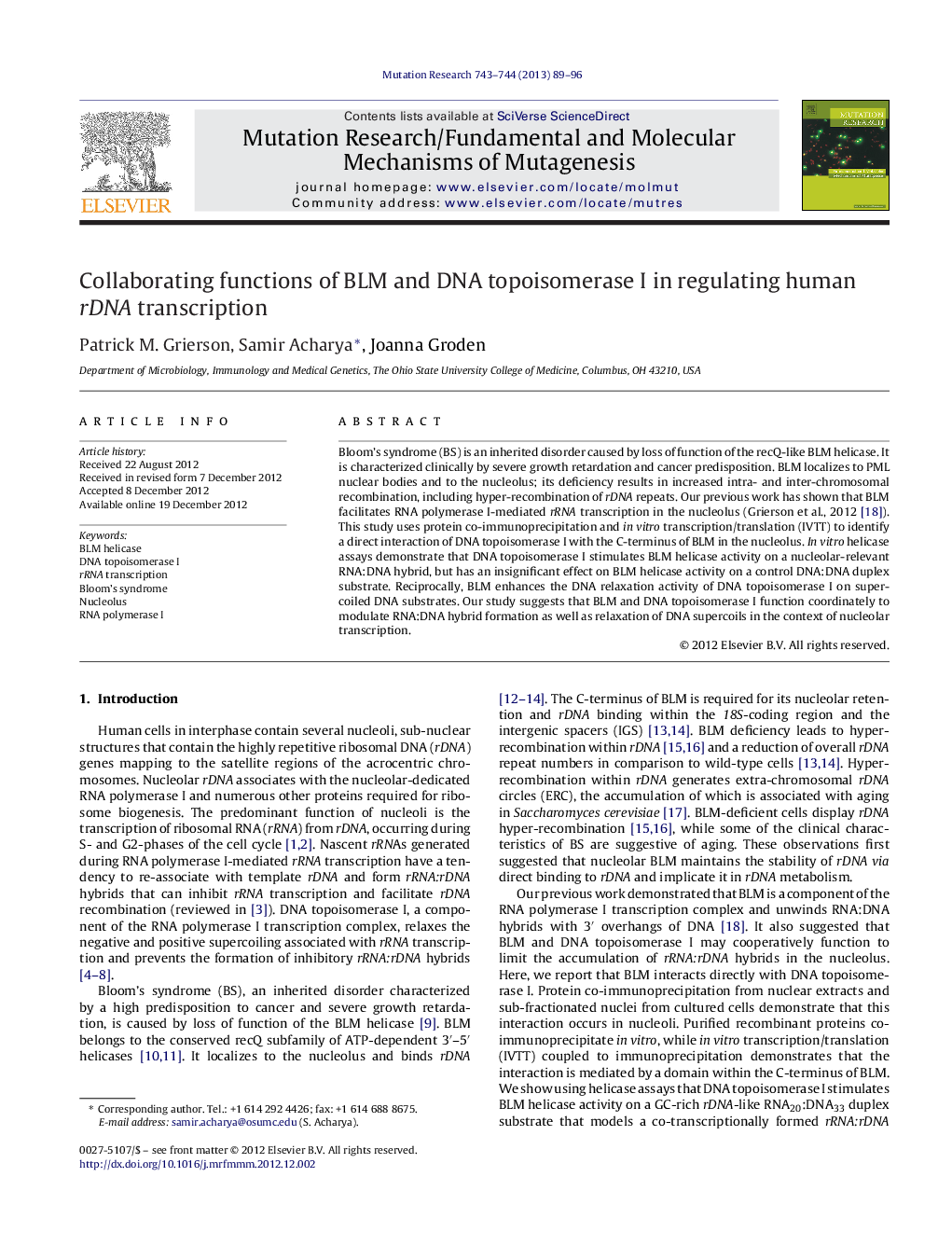| Article ID | Journal | Published Year | Pages | File Type |
|---|---|---|---|---|
| 2146432 | Mutation Research/Fundamental and Molecular Mechanisms of Mutagenesis | 2013 | 8 Pages |
Bloom's syndrome (BS) is an inherited disorder caused by loss of function of the recQ-like BLM helicase. It is characterized clinically by severe growth retardation and cancer predisposition. BLM localizes to PML nuclear bodies and to the nucleolus; its deficiency results in increased intra- and inter-chromosomal recombination, including hyper-recombination of rDNA repeats. Our previous work has shown that BLM facilitates RNA polymerase I-mediated rRNA transcription in the nucleolus (Grierson et al., 2012 [18]). This study uses protein co-immunoprecipitation and in vitro transcription/translation (IVTT) to identify a direct interaction of DNA topoisomerase I with the C-terminus of BLM in the nucleolus. In vitro helicase assays demonstrate that DNA topoisomerase I stimulates BLM helicase activity on a nucleolar-relevant RNA:DNA hybrid, but has an insignificant effect on BLM helicase activity on a control DNA:DNA duplex substrate. Reciprocally, BLM enhances the DNA relaxation activity of DNA topoisomerase I on supercoiled DNA substrates. Our study suggests that BLM and DNA topoisomerase I function coordinately to modulate RNA:DNA hybrid formation as well as relaxation of DNA supercoils in the context of nucleolar transcription.
